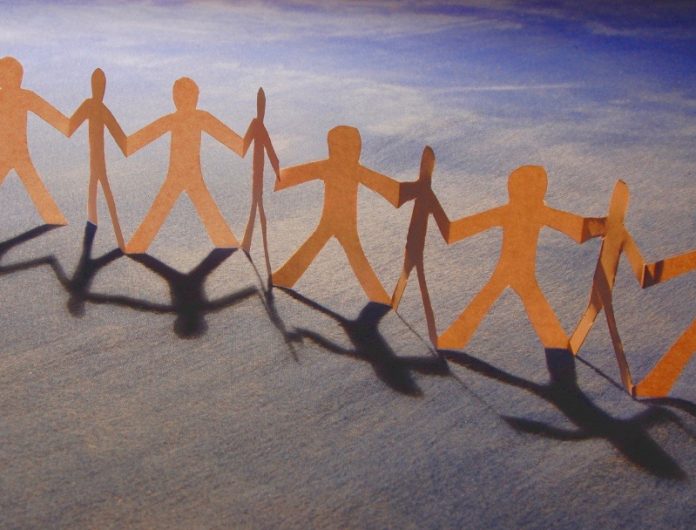For working military spouses to re-establish themselves regularly in new locations, new jobs, and even new career fields, making meaningful connections is important. Sue Hoppin, coauthor of Stories Around the Table: Laughter, Wisdom, and Strength in Military Life, and founder of the National Military Spouse Network, says authentic and meaningful connections are the best kind.
“I don’t advise spouses to join a group to network if they’re just checking a box,” says Sue, an Air Force spouse. “That may sound counterintuitive from someone who runs a networking organization, but we need to change our mindset about what networking is. It should be organic, something that’s part of our everyday life, because every day is an opportunity to engage with people.”
 Some connections may be helpful in more ways than one, but relationships are likely to be stronger if they’re built on shared experience and genuine interest in others rather than self-interest.
Some connections may be helpful in more ways than one, but relationships are likely to be stronger if they’re built on shared experience and genuine interest in others rather than self-interest.
“I don’t want to see spouses falling into a serial-networking trap rather than developing real relationships.” Says Sue. “Those relationships are so important in military life.”
Meaningful engagement can happen in the neighborhood, in a faith community, book club, or even at the commissary—anywhere people come together. This kind of networking is less about work and more about getting to know people. Joining a group for the purpose of career networking can’t replace having real relationships, where mutual helpfulness flourishes naturally.
” … we need to change our mindset about what networking is. It should be organic, something that’s part of our everyday life, because every day is an opportunity to engage with people.”
–Sue Hoppin
“When you’re in the business of maintaining relationships, you don’t know how those relationships can benefit someone or what good things they will eventually accomplish,” she says. “Networking is a two-way street. It’s not all about what you can get from someone else. You also should think about what you can do for them.”
Any relationship grows stronger when the participants look for ways to help one another, and networking can provide opportunities to pay it forward to other military spouses and friends.
“Just because you and I have a relationship, and I may be in a position to help you, doesn’t necessarily mean you will be in a position to help me in return,” she says. “Our connection may or may not be helpful somewhere down the line, but that shouldn’t matter. I believe in putting good energy and good information out in the world. Something you can do might help someone else in ways you never expected.”
The best way to create networks and relationships, says Sue, is to focus on the person rather than what that person can do or who else they know.
“Put yourself out there and build authentic relationships,” she says, “that’s where the magic happens, not when we’re thinking of these relationships as purely transactional. Those least effective at networking are the ones keeping score. We can all help each other, and it’s those mutually beneficial relationships that help everything run.”
Sue Hoppin wrote the essay “With a Little Help From My Friends” in Stories Around the Table: Laughter, Wisdom, and Strength in Military Life.
Connect with more expertise from Sue and other military spouses at the National Military Spouse Network website. Listen to Straight Talk with Sue every Monday at noon Eastern on the NMSN Facebook page, and check out the NMSN Instagram Live each Wednesday at 11:30 a.m. Eastern.


